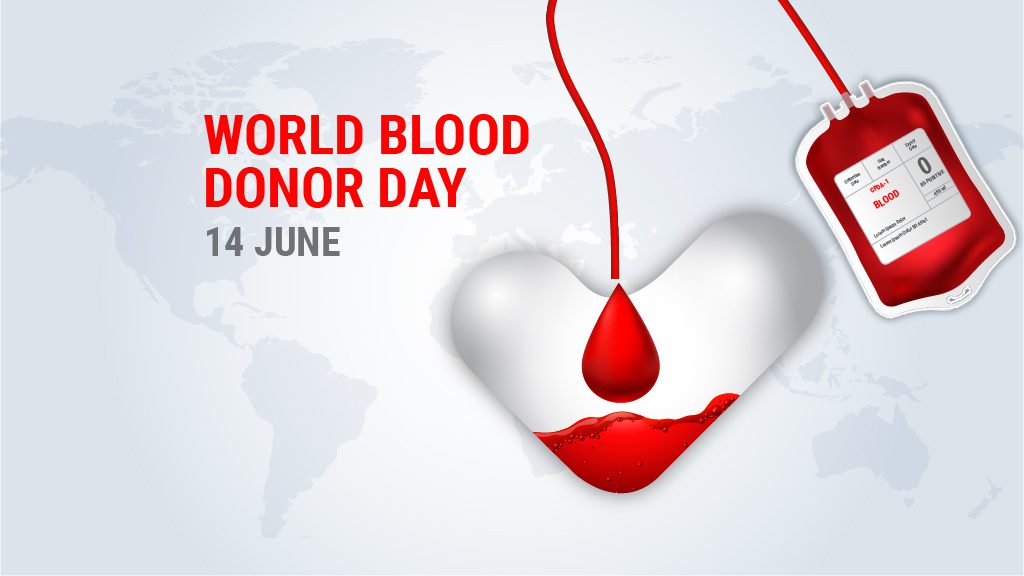Donating Blood with Diabetes: What You Need to Know

When it comes to blood donation, there are often misconceptions surrounding people with diabetes. Many believe that having diabetes automatically disqualifies an individual from donating blood. However, the truth is that people with diabetes can indeed donate blood, as long as they are in good health and their diabetes is well-managed.
So, on the occasion of World Blood Donor Day on 14th June, we wanted to bring this comprehensive article to our readers, where we will dive into the eligibility requirements and factors that individuals with diabetes should consider before, during, and after blood donation. We will also address frequently asked questions and provide valuable tips for a smooth blood donation experience for people with diabetes.
Eligibility Requirements for Blood Donation
First and foremost, it is essential to understand the general eligibility requirements for blood donation, which apply to all potential donors, regardless of whether they have diabetes or not. These requirements include:
- Being in good health and feeling well
- Weighing at least 50 kg
- Being at least 18 years old
- Not being pregnant
- Not having a cold, flu, or infection
- Not having low iron levels (low hemoglobin)
- Not having received a tattoo or piercing within the past year (in some cases)
- Not having a history of recreational intravenous drug or steroid use
- Not having cancer or being in cancer remission for less than one year
- Not having certain medical conditions such as HIV/AIDS, heart disease, or lung disease
- It is crucial to note that these requirements may vary slightly depending on the country and the specific blood donation center. Always check with your local blood donation center for the most accurate and up-to-date eligibility requirements.
Type 1 vs. Type 2 Diabetes: Does It Matter?
When it comes to blood donation, the type of diabetes you have might not be as important as how well-managed your condition is. People with both Type 1 and Type 2 diabetes can donate blood as long as their blood sugar levels are within the target range set by their doctor, and they are generally in good health.
However, some countries, such as the United Kingdom and Canada, do not allow people taking insulin to donate blood. This means that individuals with Type 1 diabetes might not be eligible for blood donation in these countries, while those with Type 2 diabetes can donate as long as they do not require insulin for blood sugar management.
Don’t struggle alone & get the expert care you deserve


Blood Sugar Levels and Blood Donation
One of the most critical aspects for people with diabetes considering blood donation is maintaining their blood sugar levels within the target range. Blood with too much sugar does not store well, which is why it is essential for individuals with diabetes to keep their blood sugar levels in check before donating blood.
When preparing for blood donation, strive to maintain your blood sugar levels within the normal range in the days leading up to your appointment. Additionally, ensure that you are well-hydrated, well-rested, and have consumed a balanced meal before donating blood.
Preparing for Blood Donation: Tips for People with Diabetes
To ensure a successful blood donation experience, individuals with diabetes should follow these helpful tips:
1. Monitor Your Blood Sugar Levels
Regularly check your blood sugar levels in the days leading up to your blood donation appointment to ensure that they are within your target range. If you find that your blood sugar levels are not well-managed, it might be best to postpone your donation until your levels are under better control.
Don’t struggle alone & get the expert care you deserve


2. Stay Hydrated
Drinking plenty of water is essential for all blood donors, but it is especially crucial for people with diabetes. Proper hydration can help prevent fluctuations in blood sugar levels and maintain overall health during the donation process.
3. Get Plenty of Sleep
Adequate rest is vital for overall well-being and can help ensure that your body is prepared for the blood donation process. Aim to get a good night’s sleep the night before your appointment.
4. Avoid Intense Exercise
Refrain from engaging in intense exercise on the day of your blood donation, both before and after the appointment. Strenuous physical activity can affect blood sugar levels and may lead to increased fatigue or discomfort during the donation process.
5. Bring Necessary Equipment and Medications
When attending your blood donation appointment, bring any equipment necessary to monitor and adjust your blood sugar levels, such as your glucose meter and insulin. Additionally, be prepared to disclose all medications you are currently taking, as certain medications may affect your eligibility to donate blood.
The Blood Donation Process for People with Diabetes
The blood donation process for individuals with diabetes is largely the same as it is for any other donor. However, there are a few additional considerations for those with diabetes to ensure a smooth and safe donation experience.
1. Before the Procedure
Upon arrival at the donation center, you will be required to fill out your medical history. Be honest and thorough when answering questions about your medical history and overall health.
2. During the Procedure
The blood donation procedure typically takes 8-10 minutes for a unit of whole blood, which is about one pint. A healthcare professional will clean an area (usually on your arm) and insert a needle into a vein to begin drawing blood. If you are donating other blood products, such as platelets or plasma, the process may take longer (up to 2 hours) and involve the use of a specialized machine.
3. After the Procedure
Following the blood donation, you will be asked to rest for about 15 minutes and may be offered simple snacks or beverages. As a person with diabetes, you may want to bring your own snacks or drinks to have more control over your blood sugar levels.
Monitoring Blood Glucose Levels Post-Donation
It is crucial for individuals with diabetes to closely monitor their blood glucose levels after donating blood. Some Type 1 diabetes individuals may experience slightly elevated blood sugar levels for 3-5 days following the donation. This could be related to hydration levels, as dehydration can easily raise blood sugar levels. Therefore, drinking plenty of water after donating blood is essential.
Short and Long-Term Health Benefits of Blood Donation for People with Diabetes
Interestingly, recent research from the King Abdullah International Medical Research Center (KAIMRC) suggests that people with diabetes who donate blood regularly may experience short and long-term improvements in their health. The study found that heart attack, stroke, and Type 2 diabetes were less common in individuals who regularly donated blood.
Additionally, just one blood donation session was found to temporarily improve insulin production and glucose tolerance, particularly evident three weeks after donation. However, by three months, most of the tested biomarkers returned to their pre-donation levels.
It is worth noting that patients who donate blood shortly before an HbA1c test may have lower than accurate results. This does not mean that individuals with diabetes should avoid donating blood, but it is a factor to consider when assessing and managing overall diabetes care.
Frequently Asked Questions
1. Can people with diabetes donate blood plasma?
Eligibility for donating blood plasma for a person with diabetes depends on the specific donation facility. Some centers may have additional requirements for plasma donors, so it is best to check with your preferred facility to determine your eligibility.
2. Can you donate blood if you take metformin?
Metformin is an oral medication commonly prescribed for people with Type 2 diabetes. As long as a person can control their diabetes with insulin or oral medications like metformin, they can generally donate blood.
3. What happens to blood sugar levels after donating blood?
In some cases, blood sugar levels may temporarily improve after donating blood. A 2016 study found that male blood donors experienced improved glucose tolerance three weeks after donation. However, it is essential to continue monitoring blood sugar levels and adjusting insulin or medication doses as needed during the post-donation recovery period.
FitterTake
People with diabetes can indeed donate blood as long as their condition is well-managed, and they are in good health. By following the tips and guidelines outlined in this article, individuals with diabetes can contribute to life-saving blood donations without compromising their own health and well-being. Remember to consult with your doctor before scheduling a blood donation appointment to ensure that you are well-prepared and eligible to donate.
The top diabetologists at Fitterfly encourage people with well-managed diabetes to participate in the noble act of blood donation. Donating blood not only reflects commendable action but also brings benefits to individuals with well-regulated blood sugar levels.
To know more about our Fitterfly’s Diabetes Management Program you can talk to our expert Program Advisor now!
This blog provides general information for educational and informational purposes only and shouldn't be seen as professional advice.
Don’t struggle alone & get the expert care you deserve






















